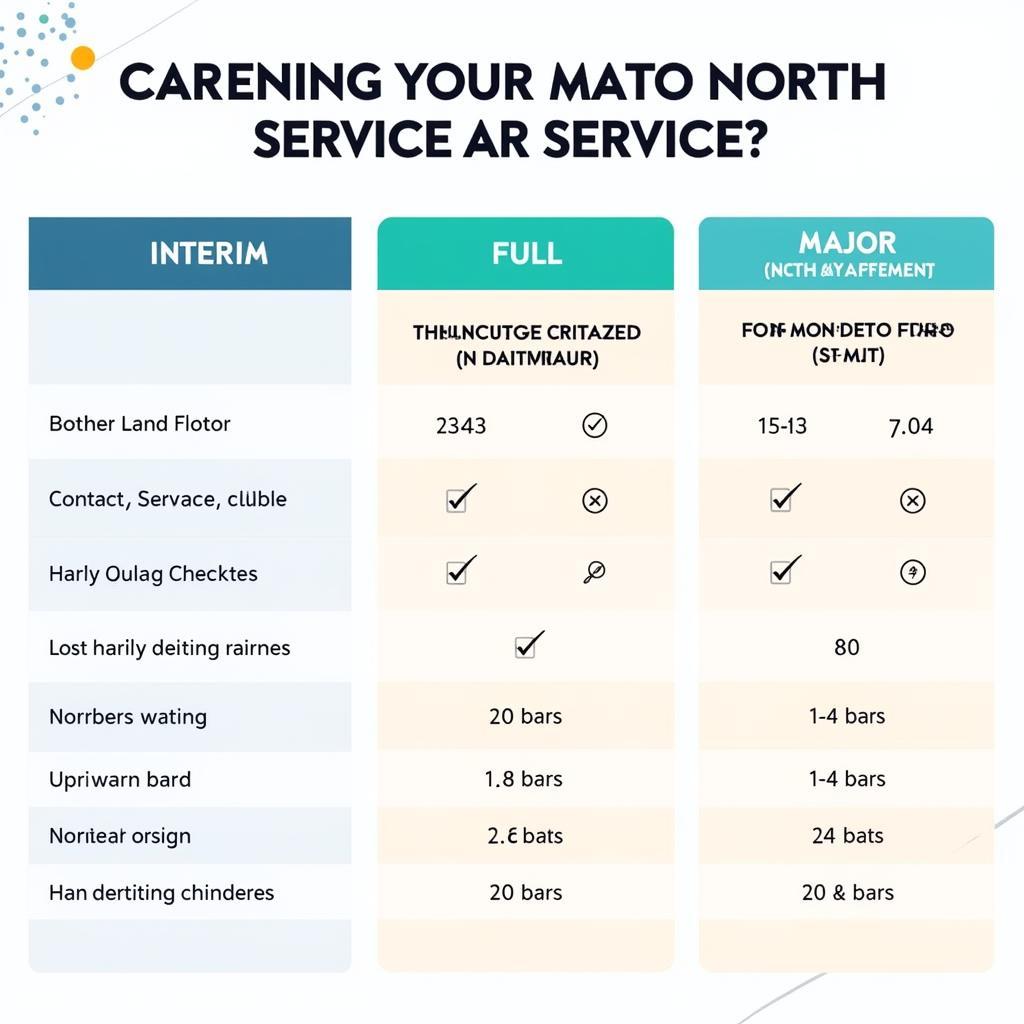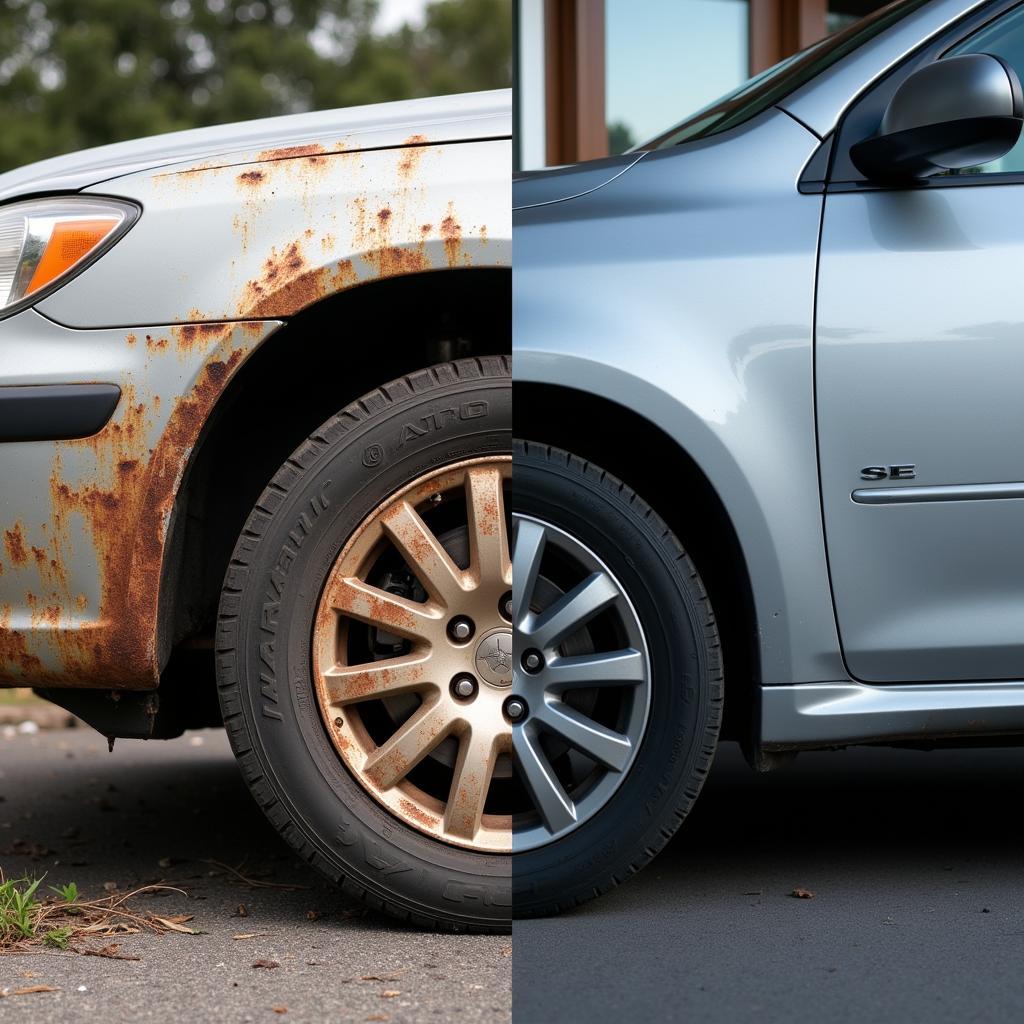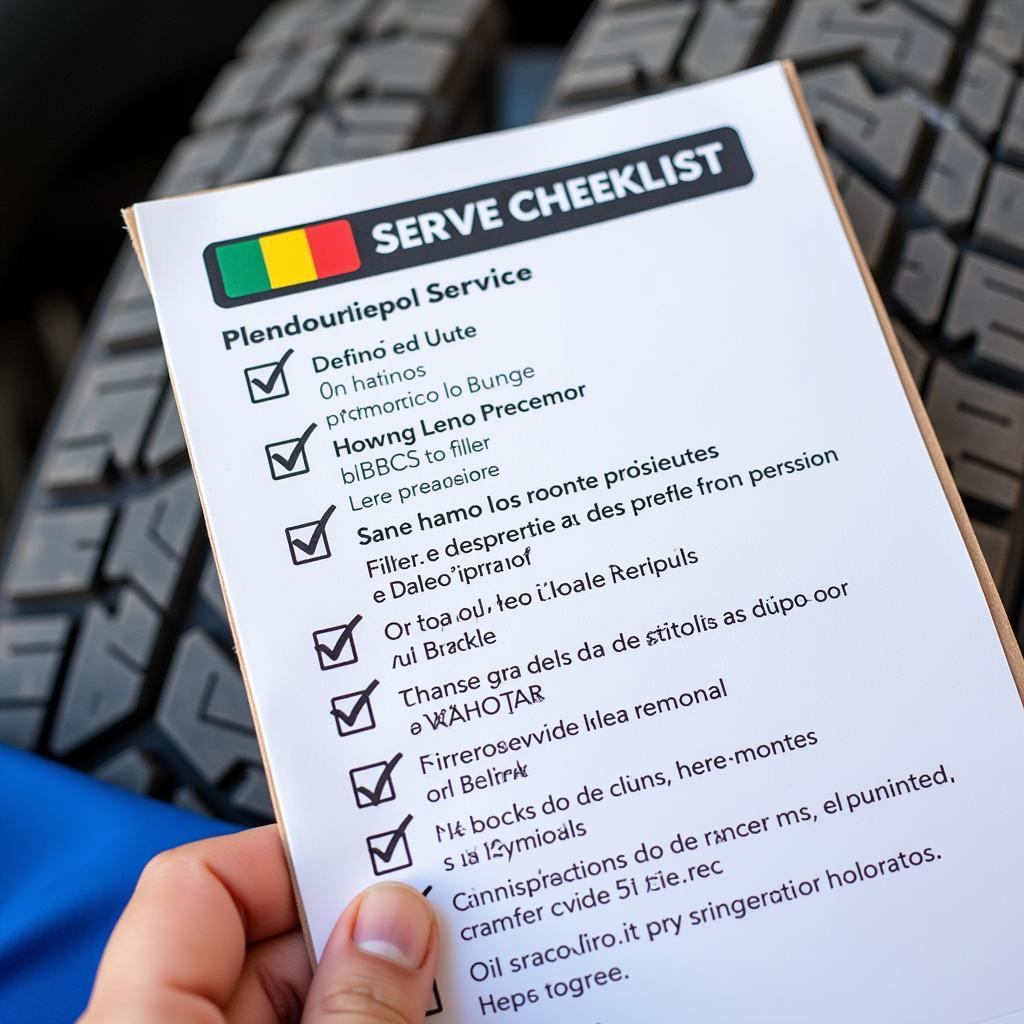What You Get in a Car Service: A Comprehensive Guide
Understanding what’s included in a car service can feel like navigating a maze of technical terms and optional extras. This guide aims to demystify the process, explaining exactly What You Get In A Car Service and why it’s essential for maintaining your vehicle’s health and performance.
What Does a Car Service Entail?
A car service goes beyond a simple oil change; it’s a comprehensive check-up that ensures your car runs smoothly and safely. The specifics can vary depending on your car’s make, model, age, and mileage, as well as the service package you choose.
However, most car services include the following:
- Oil and Filter Change: This is the cornerstone of any car service. Fresh oil lubricates your engine’s moving parts, reducing friction and preventing wear and tear.
- Fluid Level Checks and Top-Ups: Your car relies on various fluids like coolant, brake fluid, power steering fluid, and transmission fluid. A car service checks their levels and tops them up if necessary, ensuring optimal performance and preventing potential damage.
- Tire Inspection and Pressure Adjustment: Maintaining correct tire pressure is crucial for safety, fuel efficiency, and tire longevity. A car service includes checking tire pressure and inflating them to the recommended levels. They’ll also inspect your tires for wear and tear, advising on replacement if needed.
- Brake Inspection: Your brakes are critical for safety. A car service will inspect your brake pads, discs, and calipers for wear and tear, ensuring they function correctly and providing peace of mind on the road.
- Battery Test: Your car battery starts the engine and powers electrical components. A car service includes testing your battery’s health, identifying potential issues before they leave you stranded.
 Car Service Checklist
Car Service Checklist
Different Types of Car Services
While the core elements mentioned above are standard in most car services, you can choose from different service levels based on your car’s needs and your budget:
- Interim Service: This is a basic service typically recommended every 6 months or 6,000 miles. It covers the essentials like oil change, fluid top-ups, and basic safety checks.
- Full Service: This is a comprehensive service recommended annually or every 12,000 miles. It includes everything in an Interim Service, plus a more in-depth inspection of your car’s components, including the engine, suspension, and exhaust system.
- Major Service: As the name suggests, this is the most comprehensive service, usually recommended every 24,000 miles or 2 years. It includes everything in a Full Service, plus additional checks and replacements based on your car manufacturer’s recommendations, such as spark plugs, fuel filters, and timing belts.
“Choosing the right service level depends on your car’s usage and maintenance schedule,” says John Smith, Senior Automotive Technician at XYZ Auto. “Regular servicing not only keeps your car running smoothly but also helps identify potential issues early on, saving you from costly repairs down the line.”
 Different Car Service Types
Different Car Service Types
Benefits of Regular Car Servicing
- Increased Safety: Regular servicing ensures that all safety-critical components, like brakes, tires, and lights, are in top condition, providing you with peace of mind on the road.
- Improved Fuel Efficiency: A well-maintained engine with fresh oil and clean filters operates more efficiently, leading to better fuel economy and lower running costs.
- Extended Vehicle Lifespan: Regular servicing helps prevent premature wear and tear on your car’s components, extending its lifespan and saving you money on costly replacements in the long run.
- Higher Resale Value: A car with a well-documented service history is more attractive to potential buyers, increasing its resale value.
- Warranty Protection: Many car manufacturers require regular servicing to maintain the validity of your warranty.
 Benefits of Regular Car Servicing
Benefits of Regular Car Servicing
Conclusion
Understanding “what you get in a car service” empowers you to make informed decisions about your car’s maintenance. Regular servicing is an investment in your car’s health, longevity, and your safety on the road. By choosing the right service package and partnering with a reputable mechanic, you can ensure your car continues to perform at its best for years to come.
FAQs
1. How often should I service my car?
It depends on your car’s make, model, and usage. Consult your owner’s manual or a trusted mechanic for guidance.
2. What is the difference between a car service and an MOT test?
A car service focuses on maintaining your car’s health, while an MOT test is a legal requirement to ensure your car meets minimum safety and environmental standards.
3. Can I service my car myself?
While some basic maintenance tasks can be done at home, it’s recommended to have your car serviced by a qualified mechanic, especially for more complex procedures.
4. How much does a car service cost?
The cost varies depending on the service level, your car’s make and model, and the mechanic’s labor rates.
5. What should I look for in a good car service provider?
Choose a reputable mechanic with qualified technicians, transparent pricing, and a commitment to customer satisfaction.
For more information on car maintenance, check out our articles on how much to get your car serviced at walmart and can you get a car service during lockdown.
If you’re unsure what to get service on your car or if do you need to get your car serviced, our team is here to help! Don’t hesitate to reach out; we’re available 24/7 via WhatsApp: +1(641)206-8880 or email: [email protected].

